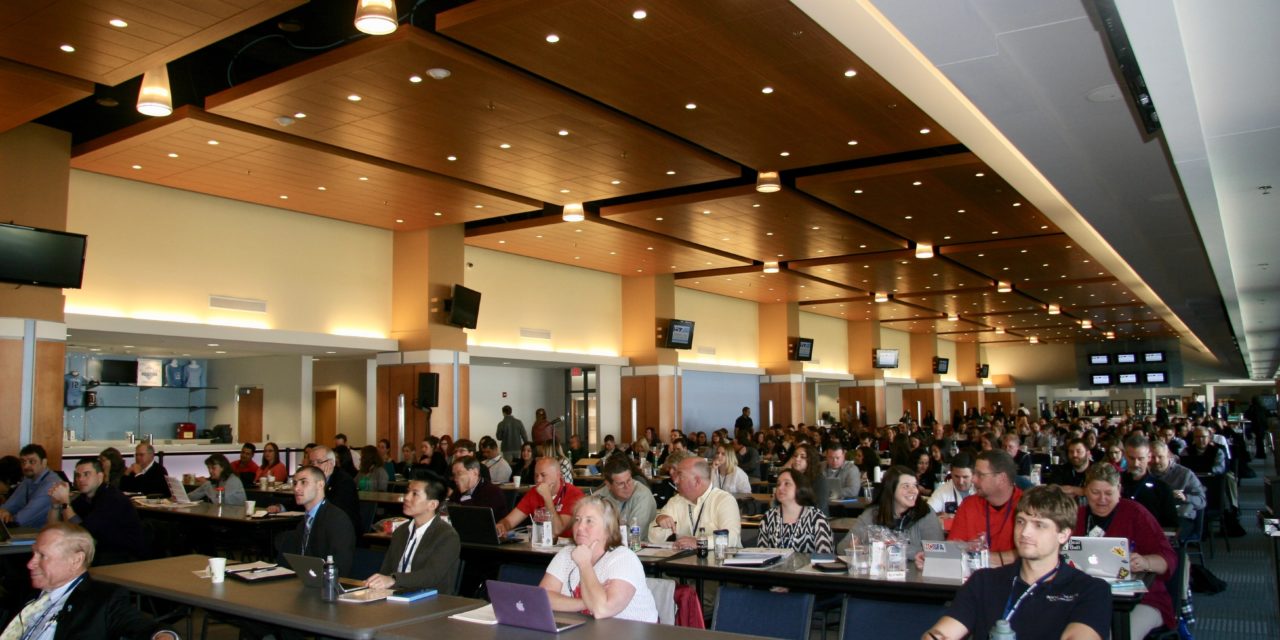The fifth Matthew A. Gfeller Sports-Related Neurotrauma Symposium hosted healthcare caregivers, researchers and sports trainers for discussion around sports related neuro-traumatic injuries in all levels of sports.
Keynote speakers for the two-day conference included retired NASCAR driver Dale Earnhardt, and chief NFL Medical Officer Dr. Allen Sills.
“So many sports are affected by brain trauma and spine trauma,” Sills said in an interview before his keynote address, “and it’s important that we, as a care-giving community, understand the latest research advances, and what are the opportunities that we can take that knowledge and apply it to the benefit of the athletes that are under our care.”
One of the focuses of the symposium is discussing ways to reduce risks and consequences of brain injuries specifically in young athletes. Education is a big part of that, Sills said.
“I’m a parent; I have children that have played sports. I am a youth sports coach, and I am a huge advocate of whatever the sport is and whatever the age is you need informed coaches who are trained in good technique, who also have basic understanding of concussion and brain injury and can remove players if they have any signs of those injuries.”
The event was hosted by UNC-Chapel Hill’s Matthew Gfeller Center on Friday and Saturday and included sessions on the intersection of Sports Medicine with Division I Athletics, atypical concussion injuries and changing sporting culture.
The conference also offered researchers an opportunity to meet with the clinicians who practice in the fields. Dr. Jason Mihalik is an associate professor in the Department of Exercise and Sport Science. He is also the co-director of the Matthew Gfeller Sport-Related Traumatic Brain Injury Research Center. He says all too often there is a distance between different groups researchers and healthcare providers working in the field.
“I think this is a really nice opportunity to engage with the community and clinicians who would potential benefit from my research. So in many respects this our big outward facing stage where we can connect with people that are hopefully beneficiaries of the work we do.”
Photo of 2017 symposium via UNC – Chapel Hill
Related Stories
‹
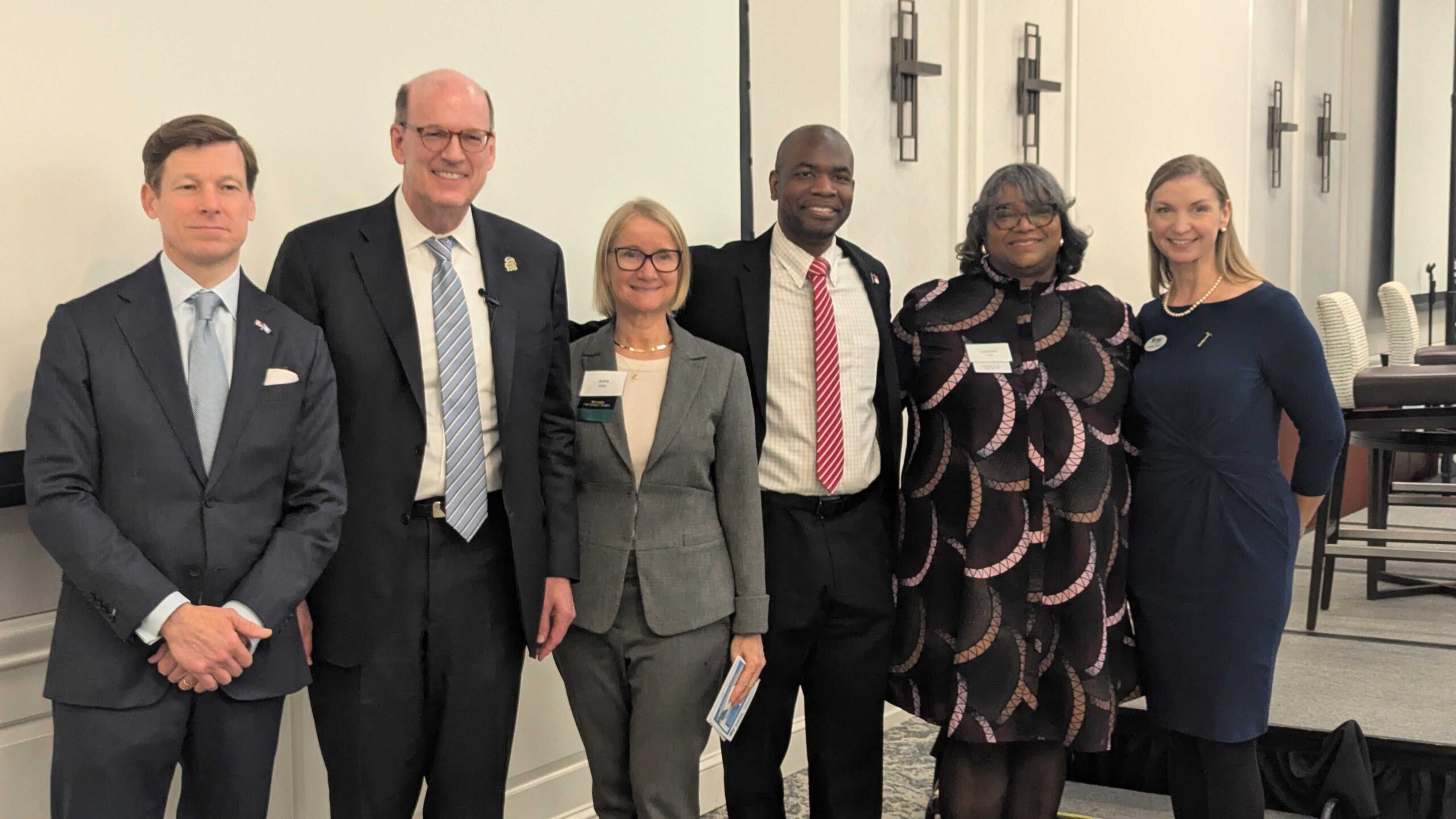
'Together is The Only Path Forward': Orange County's Habitat for Humanity Hosts Affordable Housing SummitAmid a shortage of affordable housing – both locally and nationally – the Orange County chapter of Habitat for Humanity recently held a summit to discuss how leaders can collectively aim to better address the issue.

Chapel Hill Alerts Residents To Upcoming S. Columbia Road ClosureThe Town of Chapel Hill announced that a section of S. Columbia St. will be closed as UNC conducts maintenance on its steam tunnel system.
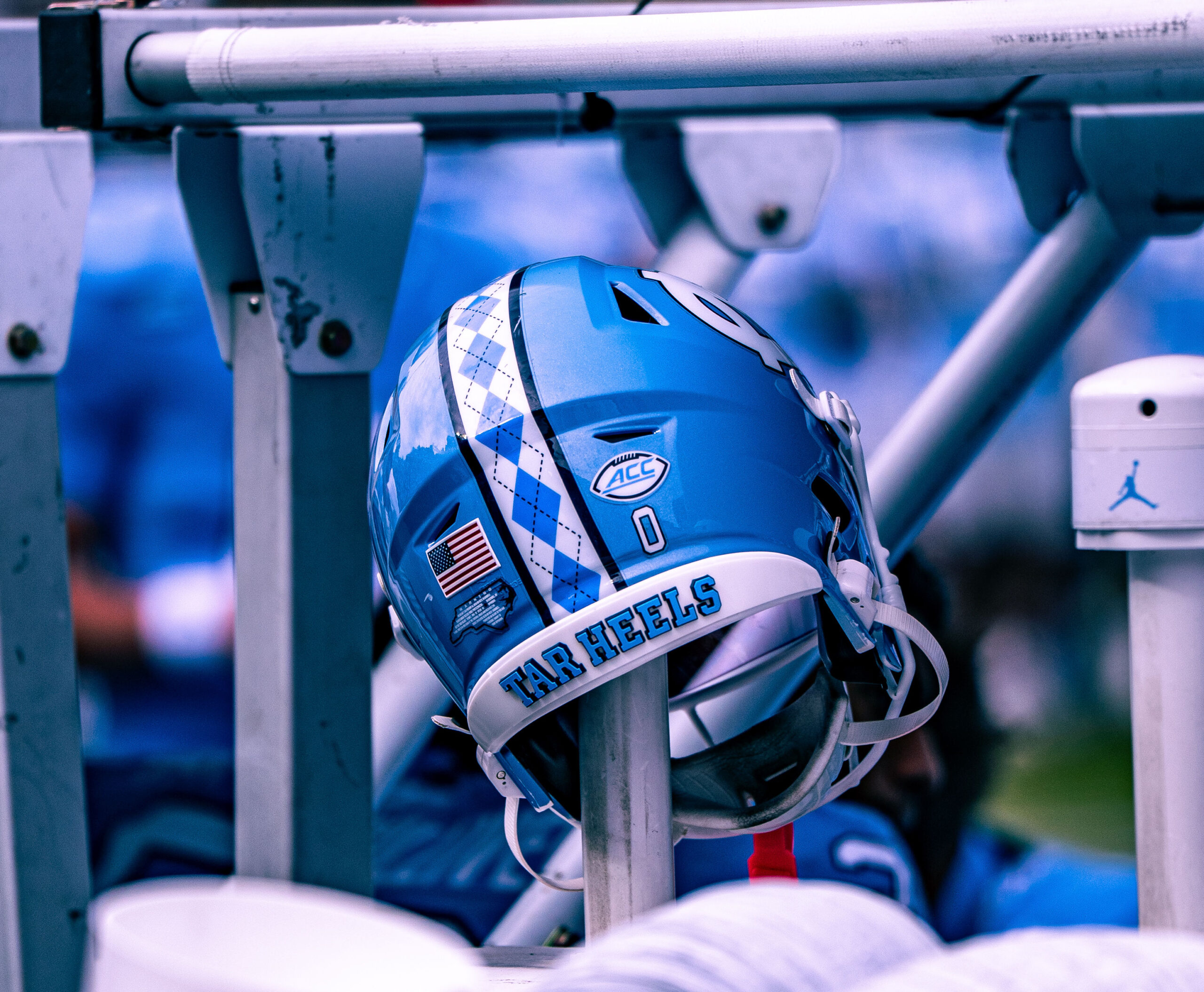
Multiple UNC Football Players Facing Reckless Driving ChargesSeveral UNC football players are facing charges of reckless driving, speeding and other violations. An investigation by WRAL, originally published Monday afternoon, reported that “nearly 20 percent” of UNC’s 101-man roster has been cited for speeding since October of 2024. The investigation named three specific players: linebacker Khmori House, safety Gavin Gibson and cornerback Thaddeus […]

Parking, Parties and Team History: What to Know Ahead of Mexico vs. Türkiye Soccer in Chapel HillThe men's national soccer teams of Mexico and Türkiye will meet in Chapel Hill Tuesday for a friendly. Here's what to know before you go.

Police: UNC Student Victim of Carjacking in W. Franklin Street Parking DeckChapel Hill Police are investigating the carjacking of a UNC student that took place early Saturday morning. No injuries are reported.
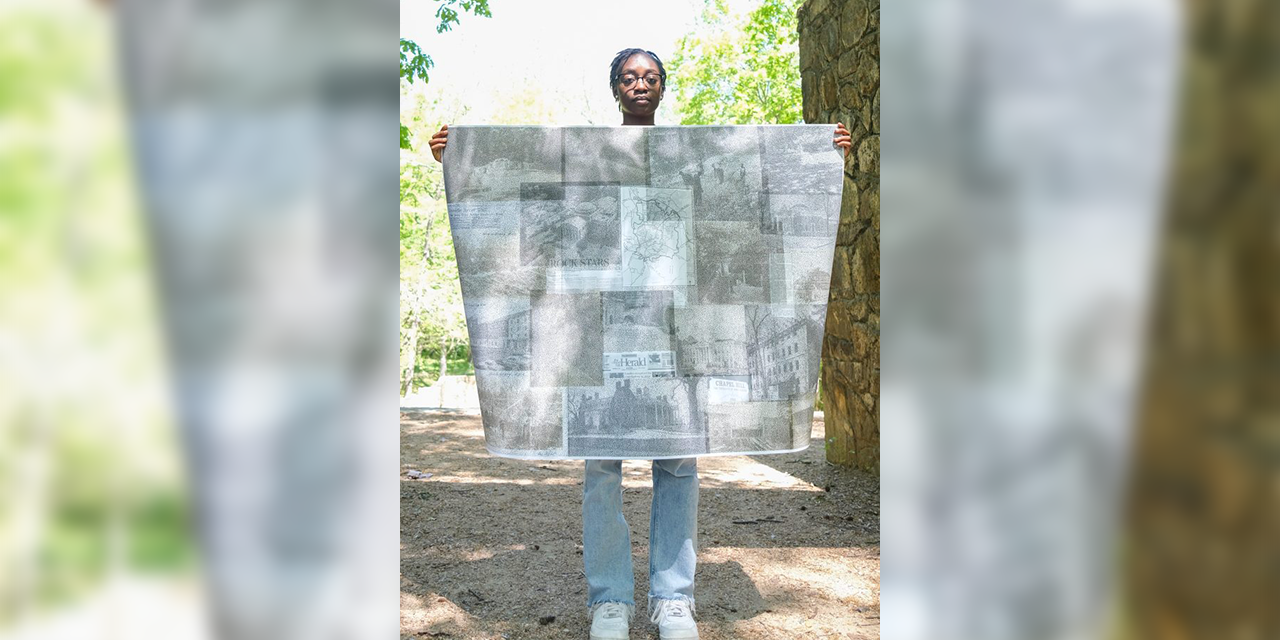
Honoring Chapel Hill's Black Builders: UNC Landmarks and the Local Faces Who Built ThemMaps are storytellers, but they can exclude certain narratives. Fowota Mortoo said that’s the case for Chapel Hill’s Black builders.
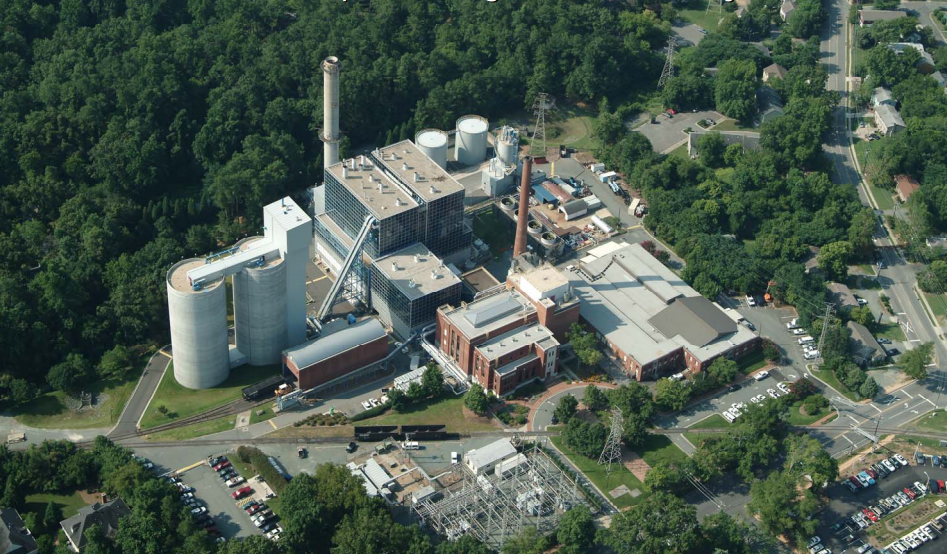
No More Coal? Chapel Hill Prepares for Hearing on UNC's Co-Gen Plant and Potential New Fuel SourceChapel Hill Town Hall will host a hearing on Thursday to take comments on a potential alternative fuel source for UNC's cogeneration plant.
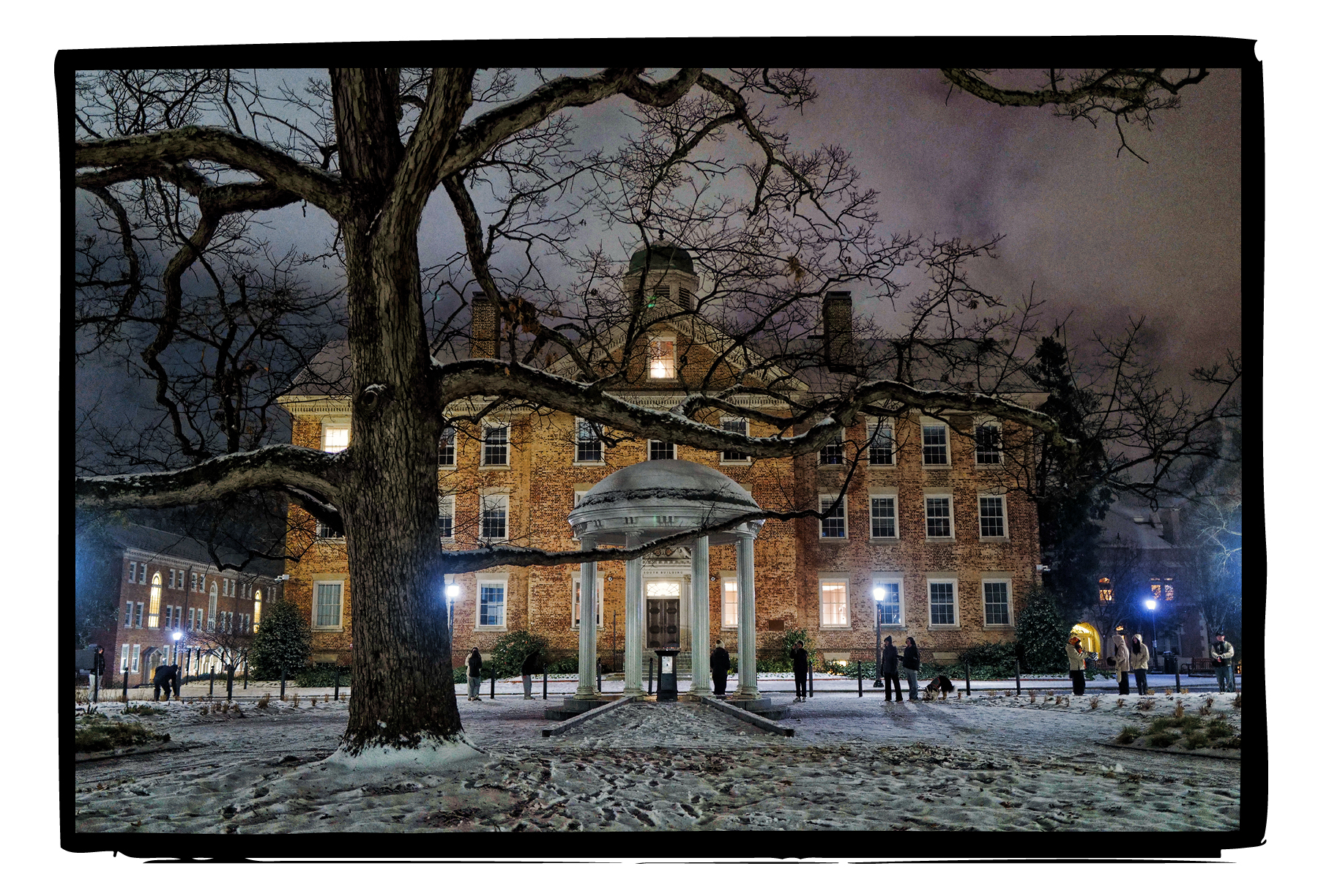
Photo Gallery: Chapel Hill Sees First Snow in YearsFor a few hours over the weekend, the greater Chapel Hill community was in a winter wonderland. A winter storm blanketed Orange County and the surrounding area with a thin layer of snow on Friday. Overnight on Saturday, it was later packed down or rinse away by freezing rain, which its own layer of ice […]
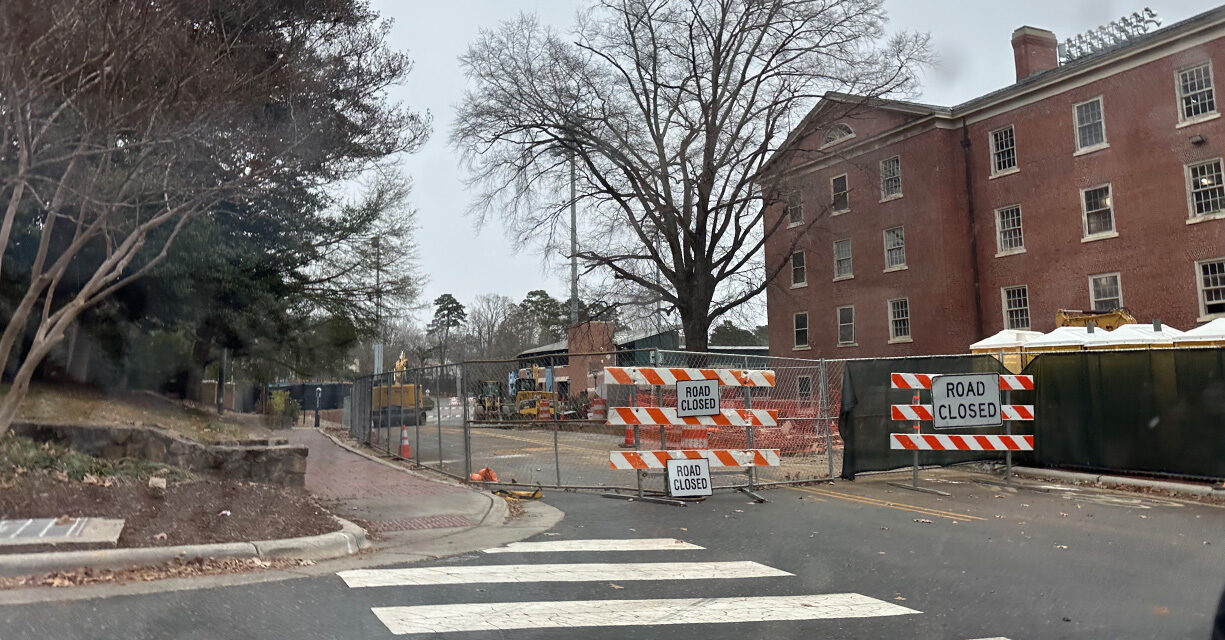
UNC: Ridge Road Open to One Lane After Month-Long Closure, Still 2 Weeks From Normal TrafficRidge Road on UNC campus is allowing vehicles and pedestrians through once again. But normal traffic patterns are likely still weeks away.

Chapel Hill Police Investigate Pair of Overnight Armed Robberies Reported 8 Minutes ApartA pair of armed robberies reportedly took place less than ten minutes from each other during the early morning hours of Saturday, according to Chapel Hill Police.
›

